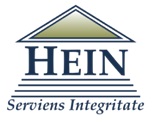Keywords
disclosure of documents, privilege against self-incrimination, business secrets, principle of proportionality, civil procedure, antitrust, damages
Abstract
Procedural tools aimed at access to information in general, and disclosure of documents in particular, are crucial for the effectiveness of private antitrust enforcement litigation and for facilitating more genuine equality of arms. Currently, profound differences exist among EU Member States’ civil procedure laws concerning disclosure of evidence held by the opponent. The transposition of the litigation disclosure mechanism contained in the Damages Directive will undermine the existing principles of Slovenian civil procedure. However, this is due to the fact that Slovenian law is outdated with regard to evidence disclosure. Not only that, it is also partially based on an erroneous premise, typical for the traditional civil law approach, whereby the principle against self-incrimination applies in civil cases in the same way as in criminal cases. As a result, the obligatory transposition of the Directive’s requirements should be perceived as a positive step for Slovenia. Yet this step will be successful only if followed by a general reassessment of evidence disclosure rules in Slovenian civil procedure law.
Recommended Citation
Galič, A. (2024). Disclosure of Documents in Private Antitrust Enforcement Litigation. Yearbook of Antitrust and Regulatory Studies, 8(12), 99-126. https://doi.org/10.7172/1689-9024.YARS.2015.8.12.5
First Page
99
Last Page
126
Page Count
28
DOI
10.7172/1689-9024.YARS.2015.8.12.5
JEL Code
K23, K42
Publisher
University of Warsaw







